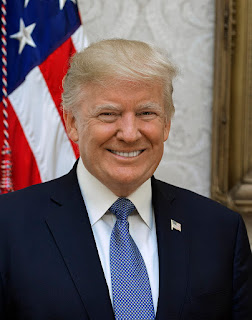Investigation of the Annapolis shooter eventually turned up evidence of his longstanding animus toward the Capital Gazette newspaper, one that included social media harassment and courtroom confrontations but was wholly unrelated to President Trump and his legitimate media fault finding.
But before any facts were known about the shooter, the president's critics charged his legitimate press criticism had engendered the assault.
Tweets implicating President Trump's rhetoric were rushed online by James LaPorta (Newsweek), Jessica Valenti (GuardianUS), Mark Harris (Vulture), Danielle Campoamor (Bustle), and Aaron Rupar (ThinkProgress).
Reuters' Rob Cox initially tweeted to Trump: "you have blood on your hands." (Cox did later post an apologetic admission of error, unlike his inky, biased fellows.)
Big Media voices were joined in Trump-smearing by a galaxy of lesser lights
Our wariness endured after Trump's victory. An October 18, 2017 Detroit Free Press report was headlined "Donald Trump's 'fake news' claims are real, say 46% of voters in [Morning Consult / Politico] poll,"
[M]ost Americans believe it is now harder to be well-informed and to determine which news is accurate. They increasingly perceive the media as biased and struggle to identify objective news sources. They believe the media continue to have a critical role in our democracy, but are not very positive about how the media are fulfilling that role.
Several of President Trump's post-Annapolis, Twitter slurrers recycled a garbage argument popular during his campaign. Despite Trump's carefully specifying "fake news," many persisted in misrepresenting his targeted brickbats as referencing the entire journalistic enterprise.
There is a fundamental flaw in arguments that by castigating shoddy journalism, Trump evinces hostility to the public interest, Who is the true enemy of the people: a press that dissembles, or the man who points that out?
Truer words were never typed, as scurrillious media tweets in the wake of the Annapolis shooting handily illustrated.






